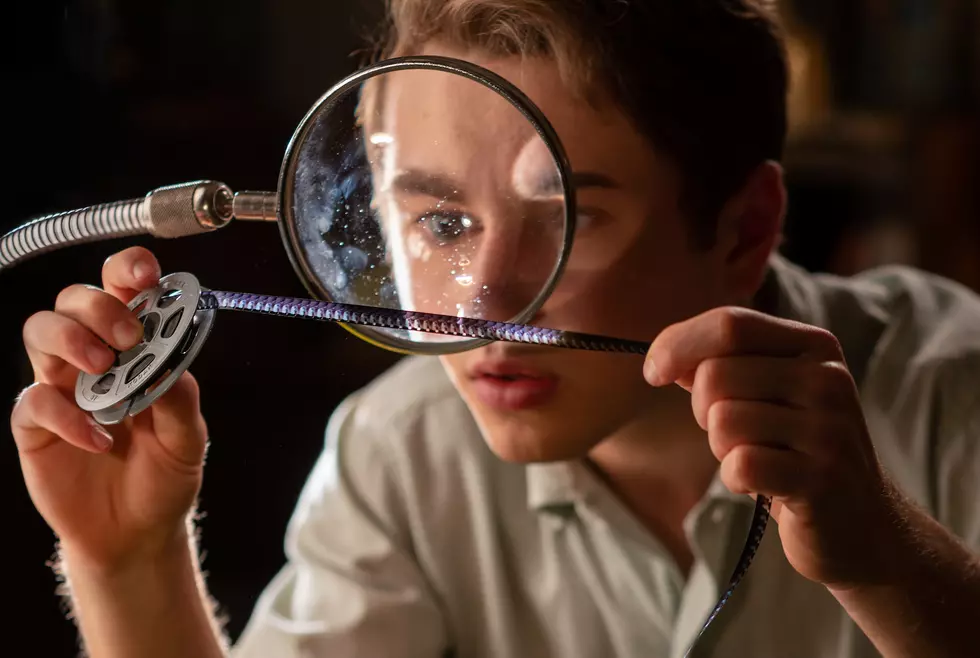
Reel Women: Take This Waltz
'Take This Waltz,' currently available via VOD and iTunes before it hits theaters, features Michelle Williams as a reckless woman questioning her marriage when the opportunity to be unfaithful arises. We take a look at this uncompromising film and its honest portrayal of relationships.
Early in the film, Margot (Michelle Williams), tells the artist she's falling for -- and the man who is not her husband -- about a time when she would babysit her niece. The baby would cry, and nine times out of ten she could figure out what was wrong and correct the problem, soothing the baby's cries. But there would inevitably be a time when she could not pinpoint the source of the problem. She couples this with an explanation of her impetuous, reckless nature; sometimes she sees a stream of sunlight hit the sidewalk and it's so beautiful she could cry. In that moment she can either succumb to the feeling or grasp on to her maturity and dismiss it. Her niece -- the baby -- was succumbing to that feeling. Margot might just succumb to that feeling as well when she considers leaving her husband for another man.
The metaphor for Margot's character is entirely on-the-nose, and in the hands of a lesser talent than writer/director Sarah Polley, this film -- which already feels as shaky as the strings connecting the relationships within -- could easily sway either way; too twee, too melodramatic, or perhaps unintentionally hilarious. At times, like a scene where Margot and her possible lover swim in a local pool and the camera watches them dance around each other gracefully, 'Take This Waltz' seems as though it's just a blink away from becoming a satire of similar relationship dramas, but Polley expertly explores relationships in a way that feels authentic to the human experience.
The first third of the film is blissfully loaded with foreshadowing and dialogue that early exposes the sort of person Margot is and the things she'll be confronting. She says that she has a fear of being afraid -- a fear of being between two places and not knowing what comes next. She's the type of person, like most of us, who finds comfort in the comfortable because it's reliable. If she leaves that comfort, she won't be able to handle the infinite what ifs and the endless unpleasant possibilities. And it's not that she's afraid of those possibilities -- she's afraid of being afraid of them. She's afraid of allowing them to exist in her mind. Easier to stick with what you know than take a chance on something that might not work out. It's the same as ordering the same food every time you go to a restaurant, or even visiting the same restaurant instead of trying something new. Why risk the possibility of being disappointed, when the old standard has always provided?
Margot is happily married, and her issues with her husband seem so small. They aren't trite, but they are such minimal complaints that the two should be able to work it out, as married couples do. There's a vague line between playfulness and romance, and Margot wants play and love to be separate. When she and her husband Lou (Seth Rogen) play little games with each other and speak to each other in silly voices, it's intimate and charming -- and real. We root for them and for this love to work, but Margot is too restless.
One night, while Lou makes dinner, Margot tries to be intimate with him and he denies her. She expresses a sentiment many of us may relate to -- the idea that no matter how long you've been with someone, when you attempt to give yourself to them it's an act of bravery because they aren't obliged to reciprocate. Couples are together and yet separate, still inhabiting their own space with their own wants and needs, but those needs are woven together with someone else's, making it difficult to extricate the we from the I. Polley delicately and deliberately examines this dynamic, as Margot tells Lou that she's being conditioned to be courageous. With every time he rejects her advances, she's becoming braver and braver, though her skin is still so very thin.
Typically in romantic dramas we see a couple presented with a blatant conflict (infidelity where one party is most definitely to blame, either for being the one who pushed the other away, or being the one who strayed selfishly), and that conflict is resolved when one person leaves or they fight to stay together. There is almost always some happy ending.
'Take This Waltz' may be incredibly direct with its metaphors, but it expresses such honest feeling that it's hard to deny the raw emotional power. Sometimes blatant metaphor is okay. A scene where Margot and Daniel (Luke Kirby), the artist she's fallen for, go on a carnival ride in the dark turns from a moment of happiness pregnant with the forbidden feelings between the two, to sad, when that pregnancy gives birth to realization that Margot just can't give herself to Daniel and hurt her husband and he realizes the same, and then to exhilaration as the two let go and just enjoy the moment. The moment is blunted when the music abruptly stops before the song is even over, and the lights go up and everything looks so stark and real. It's foreshadowing that we understand, but Margot does not.
She doesn't comprehend that -- like a woman says to her and her friends in a public shower earlier in the film -- everything new becomes old. And so when she does finally leave Lou for Daniel, she isn't prepared for what comes next. She may fear the unknown, but she's so busy anticipating disappointment from the outside that she never sees it coming from within. There's a false ending that Polley presents in a way that feels like a knowing smirk, when Daniel goes to Margot on the lake and the two will finally be together. Up to that point everyone in the film has been so likable that it's heartbreaking to consider that someone must end up unhappy, and even worse when you realize long before Margot does that everyone will need to end up unhappy to make any real emotional progress.
Following that brief scene at the lake, we get something that many films are not honest enough to provide -- what happens when the dust settles and the two lovers overcome odds to be together? Everyone wonders what happens after the end of 'The Graduate,' and 'Take This Waltz' gives you that answer. Via a striking long shot (featuring Leonard Cohen's song from which the film takes its title) that circles around the loft Margot and Daniel now share, we watch the passage of time as the two go from adventurous, lusty new couple to complacent -- sitting on the couch, watching TV in silence.
While many find silence in a relationship a reassuring feeling, where you no longer feel the need to posture yourself as interesting or fill quiet moments with sound because you can just be with someone, Margot can't stand it. To her it signals the end, and she realizes that the woman in the shower was right -- everything new becomes old.
Where many films last year -- 'Bridesmaids,' 'Melancholia,' 'Young Adult' -- sought to explore regressive female behavior in ways both comedic and tragic, 'Take This Waltz' suffers no such lofty ambition. It simply wants to explore relationships in a way that is, simply, honest. There's no heightened reality or complex visage; it's just a series of tangible moments between characters who feel less like characters and more like nouns -- versions of people, places, and things we've all been.
More From ScreenCrush









